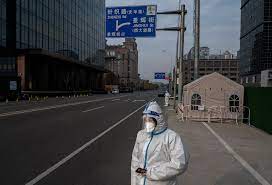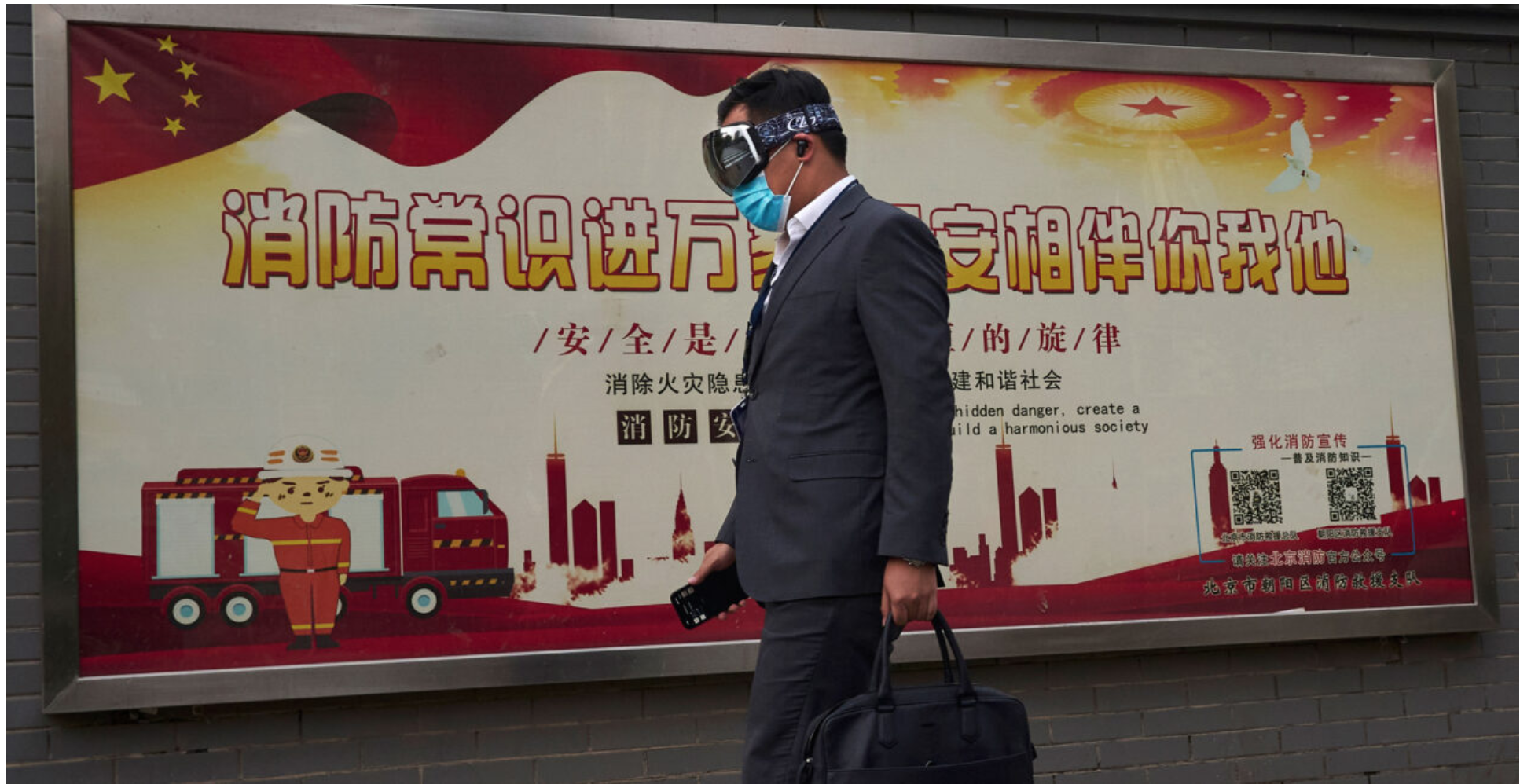from The Gray Area:
11/28/22:
China continues to pursue a 'zero covid' strategy against the pandemic disease. 'Zero covid' as a strategy is by definition never going to work. Unless we have a vaccine to eradicate the disease like polio, which we don't and don't have a plan to create one, there is no way for 'zero covid' to work. China's 'zero covid' policy is failing miserable and the country is paying the price as others have.
As noted by Louis Gave, The key question now is whether the [China] demonstrations make lockdowns more likely or less. The Communist Party’s emphasis on social stability suggest looser restrictions are ... probable. This may be better economically as well, but that isn’t the government’s main concern. Social stability commands a huge premium in Chinese culture. Delivering it is the government’s top priority. China must abandon “zero COVID” not because it is economically harmful, but because extending it will threaten social stability.
Beyond that, the damage done by the covid policies the past 2 1/2 years have proven more disastrous than useful. The following analysis of the damage done should be evidence enough for China to implement a different strategy. But, authoritarian regimes like China have no way to implement anything close to freedom and are limited to authoritarian measures that The Economic Disaster of the Pandemic Response">"make humans behave like non-player characters in computer models, you can keep them from infecting one another until a vaccine arrives to wipe out the pathogen."
The United States on the other hand is not limited in this way of thinking, although some would prefer us to be. The following article explains the fallacy of lockdowns and the economic and personal consequences of a 'zero covid' strategy in the short or the long term.

from Hillsdale College- Imprimus,
October, 2022:
On April 15, 2020—a full month after President Trump’s fateful news conference that greenlighted lockdowns to be enacted by the states for “15 Days to Flatten the Curve”—the President had a revealing White House conversation with Anthony Fauci, the head of the National Institute of Allergy and Infectious Diseases.
“I’m not going to preside over the funeral of the greatest country in the world,” Trump wisely said, as reported in Jared Kushner’s book Breaking History. The promised Easter reopening of the economy had not happened, and Trump was angry. He also suspected that he had been misled and was no longer speaking to coronavirus coordinator Deborah Birx.
“I understand,” Fauci responded meekly. “I just do medical advice. I don’t think about things like the economy and the secondary impacts. I’m just an infectious diseases doctor. Your job as president is to take everything else into consideration.”
That conversation reflected the tone of the debate, then and later, over the lockdowns and vaccine mandates. The economy—viewed as mechanistic, money-centered, mostly about the stock market, and detached from anything truly important—was pitted against public health and the preservation of life. The assumption seemed to be that you had to choose one or the other—that you could not have both.
It also seemed to be widely believed in 2020 that the best approach to pandemics was to institute massive human coercion—a belief based on the novel theory that if you make humans behave like non-player characters in computer models, you can keep them from infecting one another until a vaccine arrives to wipe out the pathogen.
The lockdown approach in 2020 stood in stark contrast to a century of public health experience in dealing with pandemics.
In all of those years, even the national media acted responsibly in urging calm.
But not in 2020, when policymakers—whether due to intellectual error, political calculations, or some combination of the two—launched an experiment without precedent. The sick and well alike were quarantined through the use of stay-at-home orders, domestic capacity limits, and business, school, and church shutdowns. This occurred not only in the U.S., but worldwide—with the notable exception of perhaps five nations and the state of South Dakota.
Needless to say, the consequences were profound.
30 months later, we are experiencing the longest period of declining real income since the end of World War II, a health crisis, an education crisis, an exploding national debt, 40-year high inflation, continued and seemingly random shortages, dysfunction in labor markets, a breakdown of international trade, a dramatic collapse in consumer confidence, and a dangerous level of political division.
More From Hillsdale College- Imprimus:















